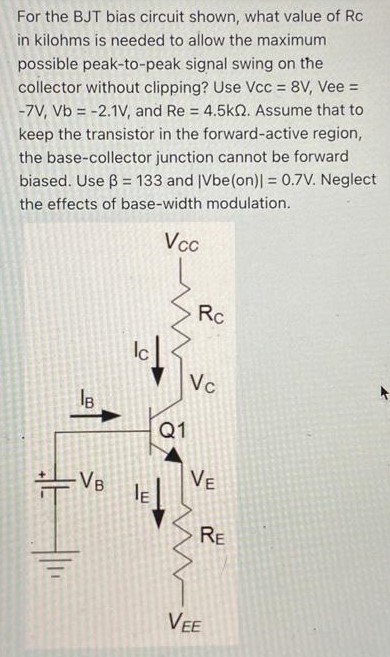For the BJT bias circuit shown, what value of Rc in kilohms is needed to allow the maximum possible peak-to-peak signal swing on the collector without clipping? Use Vcc = 8 V, Vee = −7 V, Vb = −2.1 V, and Re = 4.5 kΩ. Assume that to keep the transistor in the forward-active region, the base-collector junction cannot be forward biased. Use β = 133 and ∣Vbe(on)∣ = 0.7 V. Neglect the effects of base-width modulation.
